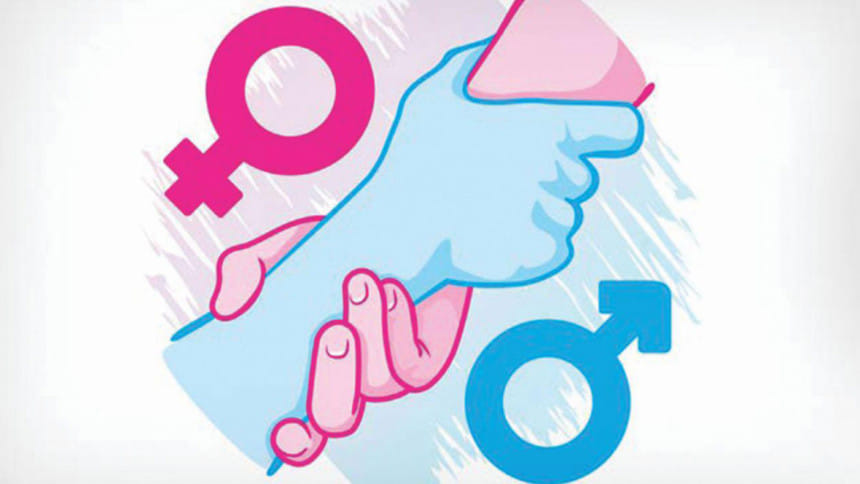Making women’s day celebrations meaningful

Every year on March 8, some of us celebrate the International Women's Day by wearing purple while some celebrate by harassing women in public transports or abusing them in workplace. For the latter category, the notion of an ideal woman becomes relevant. Essentially, the dictionary meaning of ideal is 'satisfying one's conception of what is perfect.' To me therefore, an ideal woman is a woman who has her rights protected by the law and is not judged for the choices she makes. But unfortunately, to many people, an ideal woman is one who spends her life behind a stove while to some people, an ideal woman is one who is educated yet willing to be an unpaid maid. There are some people who consider ideal women to be those who are 'permitted' to have a career and can handle work, both outside and inside the house. As per more conventional perceptions, ideal women are often thought to be those who will not talk back (even if their rights are violated), who will not wear 'modern clothes,' who will not try to be 'equal' and who will not care about inclusivity in a society.
Every year, much is said about changing people's perception, their mindset, but like any other piece of paper, we read about it and then forget it. But it is high time things changed. For the women we are celebrating today need to feel safe and equal in the society that promises them equality in "all spheres of state and public life" (Article 28 (2) of the Constitution of the People's Republic of Bangladesh).
It is to be noted that the laws in Bangladesh, like the Muslim Family Laws Ordinance 1961, the Domestic Violence (Prevention and Protection) Act 2010, the Labour Act 2006 etc, all provide with provisions that depict how much the statutes promote equality between men and women. However, it is imperative to comprehend that the main problem at hand is not the law, but the people's mindset, as has been mentioned already.
The Nari O Shishu Nirjaton Daman Ain 2000 for example is one stellar statute for many reasons but section 11 shows how the law punishes men with death penalty or life imprisonment only when they have hurt women for dowry. Clearly, when it is not a dowry case, extreme violence towards women will be dealt with under the Domestic Violence Act 2010 which does not aim to provide the women with any pecuniary relief or strict punishment. For women facing violence on a daily basis, laws need to subsume violence of all sorts and not only ones that are results of dowry demands.
If we are to look at the child marriage law of Bangladesh, we will find section 19 of the Child Marriage Restraint Act 2017 which states that "notwithstanding anything that may be in any other section of this Act, for special circumstances which will be determined by the rules (Child Marriage (Restraint) Rules 2018), for the utmost or greatest welfare of the under-aged child, by order of the court and with the consent of the father/mother/guardian (in special cases), after following the rules laid out in this Act, if a marriage is solemnised, then it will not be considered to be an offense under this Act."
Clearly this section has not mentioned any minimum age which is very problematic since by order of the court and with the parents' consent, a person of any age can be married off. As various case studies show, victims of this loophole are usually a young girl. A sadder reality is that, in many rural areas of the country, young girls are forced into marriages that last as long as they do not have a voice, regardless of any law. Although campaigns are carried out by way of advertisements in news channels, stories of girls facing violence post marriage are all too common. Hence, it is important that women are protected by way of laws that do not have loopholes.
Another threatening issue for South Asian countries is the gender gap. In 2018, Pakistan was ranked at 148 out of 149 countries, Nepal 105th, and India 108th in the World Economic Forum's Global Gender Gap Index. While Bangladesh, has shown some remarkable progress and was ranked 48th, it is essential that in real terms, the difference between men and women as reflected in social attainments is reduced by proper execution of laws at hand. Otherwise, simply wearing purple and displaying placards to show how much we care about women, is nothing but a mockery.
The writer is an LLM Graduate and a reviewer of the International and Comparative Law Journal.

 For all latest news, follow The Daily Star's Google News channel.
For all latest news, follow The Daily Star's Google News channel. 



Comments